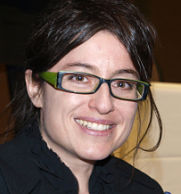156 - Sarah Pessin on Jewish Neoplatonism
Peter chats with Sarah Pessin about the Neoplatonism of Jewish philosophers such as Isaac Israeli, Ibn Gabirol, and Maimonides.
Themes:
• S. Pessin, “Jewish Neoplatonism: Being Above Being and Divine Emanation in Solomon Ibn Gabirol and Isaac Israeli,” in D. Frank and O. Leaman (eds), The Cambridge Companion to Medieval Jewish Philosophy (Cambridge: 2003), 91-110.
• S. Pessin, “Loss, Presence, and Gabirol’s Desire: Medieval Jewish Philosophy and the Possibility of a Feminist Ground,” in H. Tirosh-Samuelson (ed.), Women and Gender in Jewish Philosophy (Bloomington: 2004), 27-50.
• S. Pessin, “Divine Presence, Divine Absence and the Plotinian Apophatic Dialectic: Reinterpreting ‘Creation and Emanation’ in Isaac Israeli,” in J. Finamore (ed.), Religion and Philosophy in the Platonic and Neoplatonic Traditions: from Antiquity to the Early Medieval Period (Berlin: 2012), 133-49.
• S. Pessin, Ibn Gabirol’s Theology of Desire: Matter and Method in Jewish Medieval Neoplatonism (Cambridge: 2013).

Andalusia


 ..
..



Comments
Self-understandings & Judah Halevi music
1) This was another good podcast, but I would like to hear more about how the various Jewish philosophers categorized *themselves*. I don't think any of them called themselves Neoplatonists!
2) I am sure that you have probably already recorded, but what about using Etti Ankari's version of Judah Halevi's lyric *Yefe Nof* for the intro to the next podcast?
http://www.youtube.com/watch?v=VM0KmmR_0RI
(song begins at 0:45)
In reply to Self-understandings & Judah Halevi music by Berel Dov Lerner
Self-description
Hi there,
Thanks for the link! Regarding the issue of self-definition perhaps we should have made that clearer in the interview, but you are definitely right that none of these figures would have called themselves Neoplatonists. In fact that term was only invented in the last couple of centuries; ancient Platonists called themselves Platonists, if anything. More to the point these figures don't really say anything explicit, as far as I can recall, to identify their philosophical approach - with Isaac Israeli much is lost, but I am pretty sure that Ibn Gabirol's Fons Vitae is silent on this sort of question and in fact it is notorious for not referring to any sources explicitly. With Maimonides things are more complex (of course!) - he does refer to previous thinkers a lot, but I guess that insofar as he would associate himself with a philosophical tradition it would be Aristotelianism, albeit that he would not straightforwardly describe himself as an Aristotelian either.
Thanks,
Peter
Technical difficulties
Hi Peter,
First of all, Happy New Year.
Second, I seem to be having trouble downloading the latest episode through itunes. Never had this happen before and my other subscriptions work fine. I was wondering if perhaps there was some trouble on your end?
Thanks
In reply to Technical difficulties by Marcus
iTunes trouble
Hi,
Happy New Year to you too! I haven't heard of anyone else having troubles and I just went to the US iTunes Store and was able to download it. So I suspect the problem may be at your end. You can download it straight from this page anyway too, of course.
Thanks for listening!
Peter
connection between necessity of emanation and creation ex nihilo
Hi,
I am really enjoying these podcasts. This was an especially fascinating one. You and Dr. Pessin sort of agreed that Jewish philosophers don't need to have a problem with the concept of "necessary emanation." Wouldn't a possible problem with the concept of "necessary emanation" be that it implies that the world wasn't ever created ex nihilo (because God is infinite and immutable, so if He always needed to emanate, the world is eternal as well).
Maimonides accepted Plato's idea that the world will never end, which earned him rebuke from other Jewish philosophers like Nachmanides, but even Maimonides rejects the idea that the world had no beginning, for Biblical reasons.
Later Jewish philosophers who believed in necessary emanation maybe resolved this problem with the concept of tzimtzum, but that wasn't introduced until much later.
Does Ibn Gabirol really say that the emanation is necessary?
In reply to connection between necessity of emanation and creation ex nihilo by Aviva
Creation
Yes, you are putting your finger on the key reason for debate, which we also see unfolding on the Islamic side too with Ghazali and Avicenna. Ibn Gabirol does seem to be a straightforward emanationist, like Plotinus or Avicenna. Standarly the emanationists in these Abrahamic traditions will just say that "creation" doesn't need to mean bringing the world to be after it previously didn't exist. It can simply mean that God is the sole cause for the (eternal) existence of the universe, which depends on God for its continued existence at every moment. Even Maimonides, who I agree is an upholder of creation ex nihilo, seems to feel that there is nothing philosophically impossible about this: as he points out, you can prove that God exists even on the assumption that the universe is eternal. And Aquinas too would agree with that. It does also seem that the Torah and Quran suggest a non-eternal creation, if not necessarily creation ex nihilo, but if we learn nothing else from the Guide it is that these scriptural texts need to be interpreted carefully and may not have their obvious surface meaning!
Tring to download episodes 146-170,
I get a "malicious" message. Perhaps there's a virus embedded in some file? Thanks, Miriam
In reply to Tring to download episodes 146-170, by Miriam Caravella
Virus
Thanks for bringing this to our attention - I think that's unlikely, since that .zip file has been up for years and we never heard any problems about it. I'll let my website programmer know though.
In reply to Virus by Peter Adamson
Virus
Just to follow up on this: we did a scan on the zip file and it is fine, apparently. Probably your virus warning software is just overly sensitive!
Add new comment